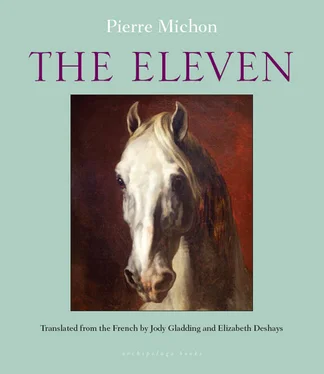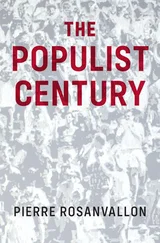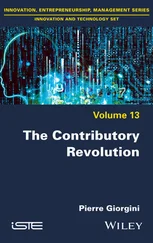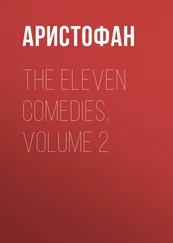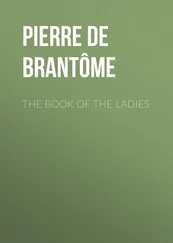The page who mounts those celestial stairs four at a time comes from France, the irresistible page who will become the painter we know. Can you imagine it, Sir, at that time of gentle living, only so because it is no longer, that is true, but how sweet to gather our dreams there, to feed them in that Germanic nest, no, hardly Germanic, simply Venetian from beyond. They rush there at the first trumpet blast, our dreams know the way. They scurry like chicks under their mother. They are sure of finding it there, that gentle way of life — or else they believe in it indefatigably. So we want to believe that for a time it existed, and perhaps it actually did, the time when Giambattista Tiepolo of Venice, that is to say a giant, a man of Frederick Barbarossa’s stature, but more peace-loving, spent three years of his life (three years of Tiepolo’s life, who wouldn’t want to see them rolling out of his little dice cup?), three years in the heart of Germania on a ceiling over a stairway, to show, perhaps to demonstrate, how the four continents, the four seasons, the five universal religions, the Holy Trinity that is one God, the Twelve of Olympus, the four races of men, all the women, all the merchandise, all the species, yes: the world, how the world thus hastened forthwith from the four corners of the earth to pay faithful homage to Karl Philipp von Greiffenclau, its overlord, who is painted in the very center where the four directions meet, as if at the unloading dock for universal cargo, the triumphal image offered us in full upon arriving at the top stair — Karl Philipp, overlord of the four directions, prince-bishop elector, grim countenance, thick waist, narrow shoulders, age uncertain, power even more uncertain, dabbler in Latin verse, moneybags wide open and morals a bit lax because, on the Carrara marble stairs under his effigy, he pursued with his cane a French dauber who procured girls for him. How pleasing. How right. How everything is in its place: comical of course, but no more so than this world. And Tiepolo above was laughing, swearing that God is a dog,
Dio cane , as the Venetians swear, which in this case was a figure of speech, of course; because what more can be asked of God than that, contracts and celestial quotes between painters of great stature and dwarf princes, the first all colors and mythology, the second all sequins — which, in the heart of Germania, may have been real coins, thalers, or guineas — but the painters, with the required reverence, paying homage to the others, the Lords: princes do not need to be great, they enjoy and do not exert themselves.
Dio cane . Can you imagine that, Sir? The prince-bishop frolicking below with his cane, arguing, rhyming, raging, doubting, glancing at his painted image to reassure himself, the little Frenchman who will grow to the stature of Frederick Barbarossa himself one day, who has not yet, who for the moment plays tricks on the prince, all the young assistants with their pots of pinks and blues, running up and down ladders, among them Domenico Tiepolo who is twenty years old, who is learning the magic, who will earn his fortune and merit in the magic, Lorenzo Tiepolo, his little brother, who is fourteen years old, who is learning the magic, who will never master either its straight or winding paths, who will earn his fortune in boats, and last perhaps the great Mozartian cloak thrown over a statue of Neumann, covering it like a midnight blue hood — and Tiepolo above, not for an instant judging any of that as we have grown used to judging it, not ruling on the inadequacies of men to their roles, on fortune and merit, on chance and truth, whatever, but painting — can you hold all that at once before your mind’s eye? The magician laboring in the service of great magic, do we dare hold that before our mind’s eye? The joy, the ease, the adequacy of the body to itself, of the mind to the mind? Tiepolo painting
a fresco , when the moment comes, in the instant when the plaster sets, without regret, straight through without touching up, even-tempered, adequate to himself from head to toe, exalting in the irreversible instant, standing at the highest point of the scaffolding, which is moving, and perhaps even lying face up on the rough planks of what is called a flying scaffold, a light basket suspended by ropes, the maestro’s little boat, pitching and swaying but sure, his nose against the ceiling, cramps in his arms, the blue dripping and running over his mouth as he endlessly makes the same lateral gesture to get rid of this blue that falls drop by drop from his chin onto his neck, can you see that? And the page who is observing and taking note of it all — can you see him? Can you see that Tiepolo has a tender spot for him — well, if Tiepolo had time for such things?
There was much to solicit tenderness.
Because he was hardly out from under his mother’s skirts — if at all. He was still permeated with them, with their softness, their fabric: as if woven from the stitches of her skirts. They gave him coherence, will and certainty, a taste for women and for himself, they made him this fair, dreamy body that we see on the ceiling in the figure of the page, and which certainly is a type derived from Veronese, not a portrait, not his portrait, but which I am sure he resembled just the same. He is at the height of happiness, up there, on the unchanging ceiling: he is in his mother’s skirts. He lowers his head. And of course it is not the ground he is looking at, but tumbling at his feet the three lengths of Beatrice of Burgundy’s skirts, the Tiepolonian torrent, the train of broken, swollen blue, alive like blue flesh, the flesh of ice, a great fish, the passing of an angel, a magic mirror. Yes, he was made of the weave of those skirts; and when it began to unravel, everything followed, beauty, will, and confidence, the taste for women, this world: he became the other, the twin brother of Simon the cobbler.
For men unravel too: and if men were made of cloth that did not unravel, we could not tell stories, could we?
Alright, I can see that despite my impatience to jump to the end, to begin with the ending, to let this story of The Eleven stand solely on the indubitable existence of The Eleven , I can see that before coming to the point, I, too, am going to have to summarize that story so often told — since it concerns the very man of whom I speak.
We know he was born in Combleux in 1730.
It is just upriver from Orléans with its visible church towers, and it bathes gently on both branches of the Loire. Overhead of course are those French Poussinian skies, which he rarely painted, and from one steeple to the next following the levee the length of the river, those islands, willows, rushes where as a child, one would have loved to hide, and the sudden flights of birds. The Loire carried boats at that time: and it is because of the boats, and what carried them, that the creator of The Eleven was born on the shores of the Loire. His maternal grandfather, a Huguenot of little faith returned to the Roman fold with the Revocation, newly converted as they said, was one of those excavation and construction contractors who, with nothing up their sleeves but the Limousin battalions whose status and salary about matched those of American slaves, made their fortunes on the great river and canal works, under Colbert and Louvois. From those great works, from those Limousin battalions, from those few men with large appetites and iron fists who pulled the Limousin battalions from their sleeves and tossed them on the muddy Loire earth, among the reeds and flights of herons, grew those towns that hold the bridges, the locks, the dead of the Loire all along the Orléans-to-Montargis canal, and that bear the old names of Faye-aux-Loges, Chécy, Saint-Jean-le-Blanc, Combleux. And that was how the grandfather grew rich on the water, at a time when his fellow believers were on the water as well, but in the king’s galleys, not profiting in any way: he earned the grand title of Engineer of the Dikes and Levees of the Loire , created by Colbert. Thus the engineer, who had made his fortune here and perhaps was sentimental, who in any case was getting too old to control his Limousin crew with an iron hand, the grandfather took a house and wife here, at the end of the canal that he had made, with much straining of Percherons and miserable Limousins, actually that Monsieur de Louvois had made, but to which he had contributed, on the last great lock, here in Combleux.
Читать дальше
